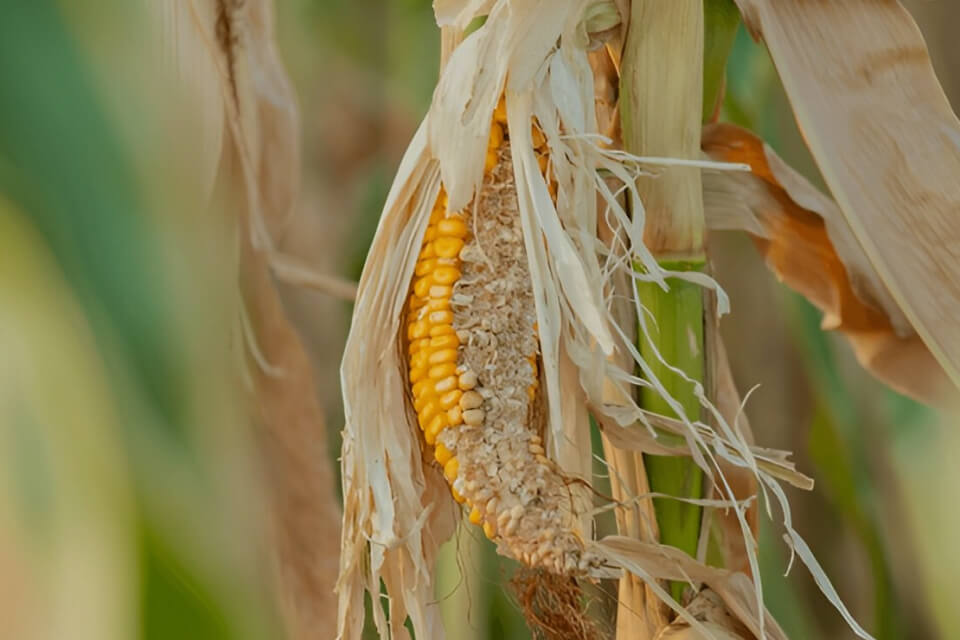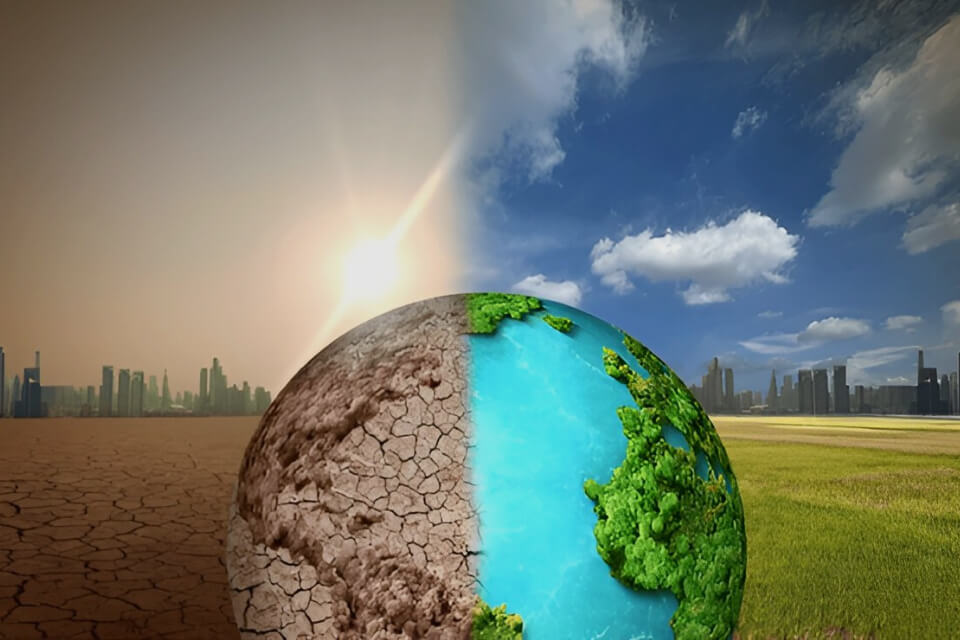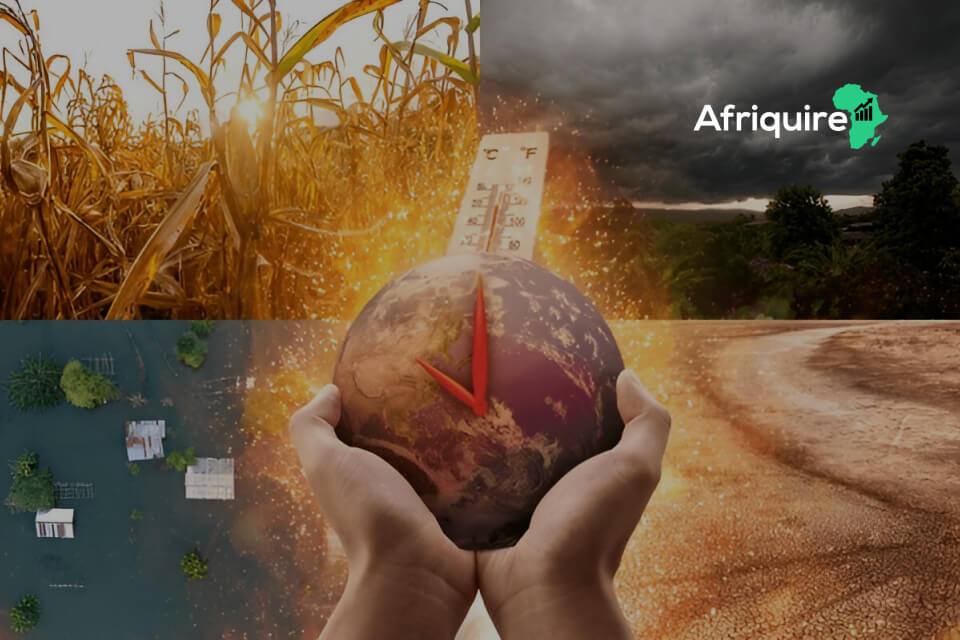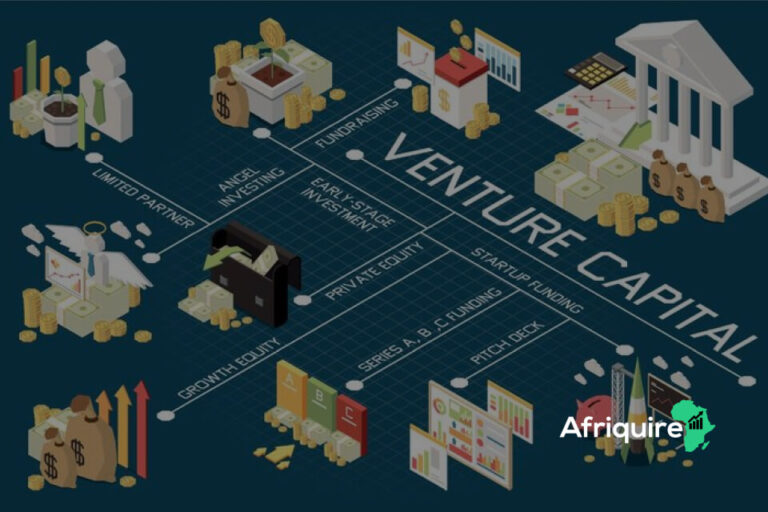- Introduction
- How Climate Change is Affecting African Agriculture
- Strategies for Climate-Resilient Agripreneurship
- The Role of Technology in Mitigating Climate Risks
- Case Studies of Agribusinesses Adapting to Climate Change
- Future Challenges and Opportunities in a Changing Climate
- Frequently Asked Questions (FAQs)
- Conclusion
Introduction
Climate change is reshaping the world, and its effects are particularly felt in Africa. This article explores the impact of climate change on agripreneurship, a vital sector for many African economies. As weather patterns shift and resources become scarce, agripreneurs face unique challenges and opportunities. Understanding these changes is crucial for fostering sustainable agricultural practices that can adapt to changing conditions while ensuring food security across the continent.
Definition of Agripreneurship
Agripreneurship simply means applying business ideas to farming. Instead of simply planting and harvesting, the agripreneur thinks of how to make more money, introduce new technology, and reach out to more customers. It’s not just about fulfilling immediate needs, but paying more attention to the business side of agriculture.
For example, an agripreneur fit use modern farming tools, plant drought-resistant crops, or sell farm products online. This kind of thinking helps African farmers turn agriculture into something that will last for the future.
Overview of Climate Change and its Global Impact
Climate change is a change in the world’s weather condition due to the burning of fuel, cutting of trees, pollution, and other human activities. These result in global warming, floods, and droughts, coupled with bad storms. Farmers are suffering because, through climate change, crops will not grow well, leading to food shortages.
In Africa, climate change manifests through rising temperatures, altered rainfall patterns, and increased frequency of extreme weather events like droughts and floods. This makes it a serious issue, as it affects the growth of crops, leading to food scarcity or insecurity. That may serve to make the farmer’s and purchaser’s life harder.
The Significance of Agriculture in Africa’s Economy
Agriculture is very vital to African economies, providing employment for over 60% of the population and contributing significantly to GDP. It plays a crucial role in food security, poverty alleviation, and economic development. Countries like Nigeria derive a huge chunk of their economy from farming.
However, the agricultural sector faces numerous challenges due to climate change, including reduced crop yields and increased pest infestations. Addressing these issues through innovative agripreneurship can help ensure that agriculture remains resilient and productive.
The Link Between Climate Change and Agripreneurship
The relationship between climate change and agripreneurship is complex but critical. As environmental conditions shift, agripreneurs must adapt their practices to survive. Climate change brings both challenges and new opportunities to the agripreneur.
Smart agripreneurs can leverage new technologies to enable farmers to better adapt to the challenge of climate change. For instance, they could create new irrigation systems that help them save water or plant heat-friendly crops. They can also look into using organic farming to reduce pollution.
They can also promote sustainable farming that does not damage the environment. If African farmers and agripreneurs work together, then agriculture will still be strong and food security will improve.
Understanding the impact of climate change on agripreneurship is essential for developing strategies that support farmers in adapting to new realities while ensuring food security across Africa.
How Climate Change is Affecting African Agriculture
Climate change is seriously affecting agriculture in Africa. It is making it harder for farmers to grow crops and raise livestock. These problems are becoming worse every year, and if nothing is done, food production will continue to decrease. So, what are the main challenges?
Rising Temperatures and Their Effects on Crop Yields
As the world gets hotter, it is affecting how crops grow. Many crops that Africans eat, like maize, millet, and sorghum, cannot survive if the temperature becomes too high. If the world becomes hotter by just 2°C, farmers in Sub-Saharan Africa could lose about 10% of their crops. If it increases more, the loss could reach 20%! This means that many farmers may struggle to grow enough food.
Changes in Rainfall Patterns and Increased Drought Frequency
Climate change is also changing how rain falls. Some places that used to get enough rain are now experiencing drought, while others are getting too much rainfall. This leads to flooding that destroys farms. Most farmers in Africa rely on rain to grow their crops. If the rainfall is too little or too much, their farms will suffer. For example, the Horn of Africa region – Djibouti, Eritrea, Ethiopia, and Somalia – has experienced severe drought, killing crops and livestock.
Desertification and Soil Degradation
Desertification happens when land turns into a desert because of climate change and harmful human activities. This makes the soil poor and unsuitable for farming. Soil degradation means the soil is losing its nutrients and becoming weak. Both of these problems are making it harder for farmers to grow crops.
Increased Prevalence of Pests and Diseases
Climate change is making pests and diseases spread faster. These pests destroy crops, while diseases affect both plants and animals. This causes farmers to lose a lot of money because their farms produce less food. When farmers struggle, it affects food supply and makes it harder for people to get enough to eat.
To solve this problem, farmers need better farming methods, stronger crops, and support from experts. By taking action, we can reduce the effects of climate change and help farmers grow more food for everyone. Working together, we can protect our farms and future.
Impact on Livestock and Fisheries
Climate change is not only affecting crops; it is also harming livestock and fisheries. As the weather changes, it becomes harder for animals to find food and water, making them weak or causing them to die. In fisheries, rising water temperatures are killing fish or forcing them to move to new locations. This is a big problem for people who depend on fish for food and income.
How Agripreneurs Can Help
Agripreneurs (alongside farmers and fishermen) can survive these challenges by introducing new technologies and better ways to manage resources. Climate change is creating many problems for agriculture in Africa, but with smart solutions, hard work, and support for agripreneurs, things can improve.

Strategies for Climate-Resilient Agripreneurship
Climate change is hitting African farming, but we can use strong strategies to make agripreneurship survive and still be profitable. How will this be done?
Climate-Smart Agriculture (CSA) Practices
Climate-Smart Agriculture is a way of putting together old and new farming practices to help address climate change. It helps farmers to increase food production while protecting the environment and reducing negative impacts like drought and erosion.
Some ways farmers can do this include:
- Agroforestry: planting trees with crops
- Intercropping: mixing different crops on one land
- Crop rotation: changing crops every season to improve soil
People also plant crops that don’t spoil easily in hot weather and use good land management to stop the soil from washing away. But CSA is not the same for every place. Each farming community needs to find the best way that will suit their own climate.
Agroforestry and Sustainable Land Management
Agroforestry refers to the practice of planting both trees and crops by farmers. Such methods have been found useful in the following ways:
- Soil protection against erosion
- Increased land productivity
- Restoration of tree cover
Farmers grow crops like coffee under shades or plant fruit trees near their farms. Some use trees as natural fences or keep animals under them. Another way to protect land is afforestation. This is planting trees for places that were previously not forested or reforestation – the process of restoring forests or planting trees in damaged areas. This will help reduce climate change impact and make land useful for future generations.
Water Conservation and Irrigation Innovations
Farming depends highly on water resources, however, climate change has led to the reception of drought in many places. Farmers can use several ways to manage water better:
- Rainwater Harvesting: gathering rain for further use
- Drip Irrigation: giving small water doses directly to plant roots
- Water Storage Systems: saving extra water for a dry season.
These conserving-water techniques help farmers grow more food, even when there isn’t much rain.
Diversification of Crops and Livestock to Reduce Risk
Farming shouldn’t depend on only one crop or animal. If one fails, others will remain to keep a form of balance. Diversification helps farmers balance risk. Ideas include:
- Growing different crops for different seasons
- Keeping different types of livestock
- Integrating crop farming with animal rearing
With that, farmers will still make money even when climate change destroys part of their work.
Policy and Financial Support for Climate Adaptation
Governments and organizations are encouraged to support agripreneurs with money, training, and good policies. Among other things, farmers need access to:
- Credit Availability: to buy better farming tools
- Insurance: to protect their farms from losses
- Training: to learn new farming skills
The African Union supports Climate-Smart Agriculture to help 25 million farm families by 2025. The World Bank also supports farmers to fight climate change. With good policies and funding, agripreneurship grows stronger in Africa.
Climate change is hitting agripreneurship hard, but smart strategies keep farmers successful. Agri-entrepreneurs can adapt to climate-smart agriculture, water conservation, diversification, and sustainable land management in building strong farms.
The Role of Technology in Mitigating Climate Risks
The role of technology seems to mitigate climate risk. Technology helps farmers on the African continent to manage climate variability better. Let’s see how:
Precision Farming and Data-Driven Agriculture
Precision farming means farming well using appropriate technology. It involves the usage of things like sensors, drones, and computers in raring to collect information concerning the farm and using such information to make better decisions. This means farmers know the exact time to water their crops, the amount of fertilizers to use, and when to harvest.
One good example is the EOSDA Crop Monitoring, which helps farmers manage their farms by calculating the right amount of inputs such as water and fertilizer. This approach fits in reducing soil pollution and protecting the environment. Digital technology in farming is very crucial in reducing the impact of climate change and food insecurity in Africa.
Use of Drought-Resistant and Genetically Improved Seeds
Drought-resistant and genetically improved seeds are seeds that scientists have developed to either survive well in dry areas or produce better crops. This is very important due to climate change, which has been causing drought in most parts of Africa.
They develop, for instance, climate-resilient crops like sorghum and millet that can be used in dryland farming. The better crop would be able to assist farmers in risk avoidance while enhancing food security and, therefore, support agripreneurship within the African continent.
Renewable Energy in Farming (Solar Irrigation, Biogas)
Renewable energy is energy sourced from resources such as the sun and wind.
- Solar Irrigation: This is the use of sunlight to drive water pumps in irrigating crops. This method may help farmers, especially for areas where rainfall is not so adequate.
- Biogas: Biogas is a gas you can get from waste products, such as animal waste. Farmers can use it to cook or generate electricity for their farms. This will make farming more sustainable and reduce waste.
Mobile Apps and Digital Platforms for Weather Forecasting and Market Access
Mobile applications assist farmers in gathering information about the weather and selling their products through mobile applications and digital platforms. Farmers are able to use mobile devices when accessing information on climate and making informed farm-based decisions.
For example, most of the farmers use weather alerts to decide the timing for planting and harvesting. In fact, a large number of farmers find the weather alerts useful, while the helplines are used by a lot of farmers when advice is needed. Technology is making farming easier and smarter.
Blockchain and AI-Driven Solutions for Supply Chain Resilience
Blockchain and AI help make the supply chain for agricultural products stronger.
- Blockchain is a sort of digital record that keeps track of every step an agricultural product takes right from the farm to the market.
- AI can help predict problems regarding the supply chain and find solutions.
It fits into ensuring the food that the farmers produced does not get spoiled before it gets to the people who needed the produce. This, in turn, will help the agri-entrepreneurs in selling their produce, boosting further the future of agripreneurship in Africa.
Technology is transforming the way that farmers in Africa manage climate risk. From precision farming to renewable energy and digital platforms, technology helps farmers produce more with less and earn more profit.

Case Studies of Agribusinesses Adapting to Climate Change
Climate change is really affecting agriculture in Africa. It causes droughts, heavy rain, and other problems that may destroy farm products. However, some agripreneurs have found a way to curb these issues. Let us take some real examples.
Successful Agripreneurs Implementing Sustainable Practices
A number of agripreneurs in Africa have proved that sustainable farming is possible.
- Mwees Farm Enterprises LTD.: This is a Kenyan-registered agricultural company under the leadership of its founder, Felicity Mwendwa. It practices sustainable agriculture and uses ESG or Environmental, Social, and Governance. There is no high dependence on chemicals and fertilizers. They also have important business policies learnt through collaboration with Invest in Africa and the World University Service of Canada/WUSC.
- Kiel Bien-Être: This is an agripreneurship business from Benin. It produces a range of Benin baobab products and employs local women. It promotes sustainable farming by transforming the fruit of the non-timber forest product baobab into snacks and cosmetics, thereby not wasting any part of the fruit.
- Springboard: This is a Nigerian agribusiness that empowers small farmers and rural women. They grow organic cacao, plantains, and even edible crickets. They give tree seedlings to farmers every year.
To build strong agriculture for Africa, we have to learn from these agripreneurs.
Government and NGO-Led Initiatives Supporting Climate Adaptation
Governments and NGOs are aiding agripreneurs with various initiatives.
- The Tony Elumelu Foundation trains and supports young African agripreneurs in growing sustainable businesses.
- The African Union is also advocating for Climate Smart Agriculture to be adopted by farmers to adapt to climate change.
- Other NGOs are supporting agripreneurs interested in adopting better farming practices with finance and training.
Innovations in Climate-Resilient Agribusiness Models
Many different agripreneurs are coming up with new ideas to fight climate change.
- Envirotech Bamboo Limited (Ghana): They specialise in bamboo technology and partnership development. They train, design, build and market bamboo products. They process bamboo into bicycle frames and other cycling accessories, therefore protecting soil and encouraging environmentally friendly transportation.
- Acacia Kia (U) Limited (Uganda): They foster sustainable development by employing rural farmers in the cultivation and sale of bamboo for value addition into furniture, jewelry, and kitchenware. It reduces plastic waste.
- SCITRA: It is a company that specializes in converting agricultural and household waste into eco-friendly products and organic fertilizers. They also recycle plastic waste into useful items.
Lessons Learned from Real-World Examples
From the cases highlighted above, sustainable agriculture is able to effectively equip agripreneurs with all necessary tools towards achieving climate response.
- ESG policies support the environment and business growth simultaneously.
- Sustainable practices make agribusiness strong for future challenges.
- Some African agripreneurs have adopted recycling and low-carbon farming.
- Young agripreneurs are using creativity in finding climate-friendly solutions.
Agripreneurs are not just farmers. The role of agripreneurs in sustainable farming is very important and helps to protect the planet. If we support sustainable farming, we will have a better future in terms of food production and also the environment.
Future Challenges and Opportunities in a Changing Climate
The future of agripreneurship in Africa depends on how we rise to the challenges of climate change along with other pressures. What are some of the things to consider?
Long-Term Threats to African Agripreneurship
Climate change is one of the biggest disasters that can affect the development of agripreneurship in Africa. Rising temperatures, unpredictable rainfall, together with extreme weather conditions, may damage crops and reduce the number of healthy animals and impede farmers from earning a decent income. Other challenges include:
- Inaccessibility to finance
- Poor road and transport systems
- Limited access to farming information
- Small and scattered markets
The other challenge is that many farmers in Africa are getting older. Unless youths replace them, then there will be less food for people to eat. This may cause food insecurity.
If the future of agripreneurship in Africa has to shine, then we have to find ways to reduce these problems.
The Role of Government Policies and International Collaboration
A major step that would help agripreneurs adapt to climate change is government policy and international collaboration. Governments can support sustainable farming with policies, give monetary assistance to farmers to expand their businesses, finance agripreneurship projects, improve roads, storage facilities, and markets. The government can train farmers on more advanced ways of farming and give them high-yielding seedlings to improve food production.
International collaboration can equally be helpful with knowledge sharing of improved farming techniques, technical assistance for farmers, and contributing to the financing of agripreneurship projects.
Emerging Business Opportunities in Climate Adaptation
Even though climate change is a problem, it also provides new business opportunities for agripreneurs. Some of these include:
- Growing crops that can survive droughts
- Offering climate-smart farming services
- Creating markets for sustainable agricultural products
Technology is also helping agripreneurs. Some develop mobile applications that:
- Provide farmers with prevailing market prices and weather updates
- Link farmers up with buyers of their produce
- Assist them in monitoring crops to enhance yields
This clearly shows that the incorporation of technology in African agripreneurship creates new ways by which young people can succeed in farming.
The Need for Continued Research and Investment in Sustainable Agriculture
For agripreneurship to be successful in Africa, we have to continuously invest in the research and investment in sustainable agriculture, that is:
- Development of better farming technologies,
- Diversifying uses of water, fertilisers, and soil, and,
- Making farming productive and profitable.
Others who have succeeded in the field already invest in research to improve fertilisers, irrigation systems, and even dams. If more youths come on board, they can turn farming into a lucrative business.

Final Thoughts on Building a Resilient Agricultural Sector in Africa
A good agricultural sector does not only depend on governmental contributions. It is everyone’s task, from the smallest farmer to big international organisations. If we want agripreneurship to grow, we must reduce the problems caused by climate change and create a better future for farming.
Various youthful agripreneurs are changing people’s perception toward farming. Youths are making farming a professional, profitable career service. As a matter of fact, agribusiness is one of the best options to grow an African economy by creating jobs for the youth.
As they usually say, “No one is too small to make a difference.” We can all invest in sustainable farming and help change Africa!
Frequently Asked Questions (FAQs)
1. How will climate change affect agriculture in Africa?
Climate change is expected to lead to less favorable weather conditions, increasing the unpredictability of crop and livestock yields, along with more frequent extreme weather events.
2. Why is African agriculture so vulnerable to climate change?
The majority of agricultural systems in Africa rely on rain-fed methods, with many small-scale farmers facing limited financial resources, inadequate infrastructure, and restricted access to information.
3. What can African farmers do to mitigate the impact of climate change?
Farmers can use improved inputs like fertilizer and better seeds, and there can be institutional improvements such as localized, commodity-specific forecasts.
4. What role do governments and international organizations play?
They can assist agripreneurs by providing supportive policies and financial resources, including access to credit, insurance, and training programs.
5. What are the long-term threats to African agripreneurship?
Long-term threats include rising temperatures, shifts in rainfall patterns, and the occurrence of extreme weather events.
Conclusion
The impact of climate change on agripreneurship in Africa poses significant challenges, such as increasing temperatures and unpredictable weather patterns, which jeopardize crop yields and overall food security. However, these challenges also drive innovation and open up avenues for climate-resilient agribusiness models. By embracing climate-smart agricultural practices, utilizing technology, and enacting supportive policies, African agripreneurs can address these risks and foster a more sustainable and thriving agricultural sector.
Continued research, investment, and collaboration among governments, international organizations, and local communities are essential to unlocking the full potential of agripreneurship in adapting to a changing climate and ensuring food security for the continent.
Impact of Climate Change



